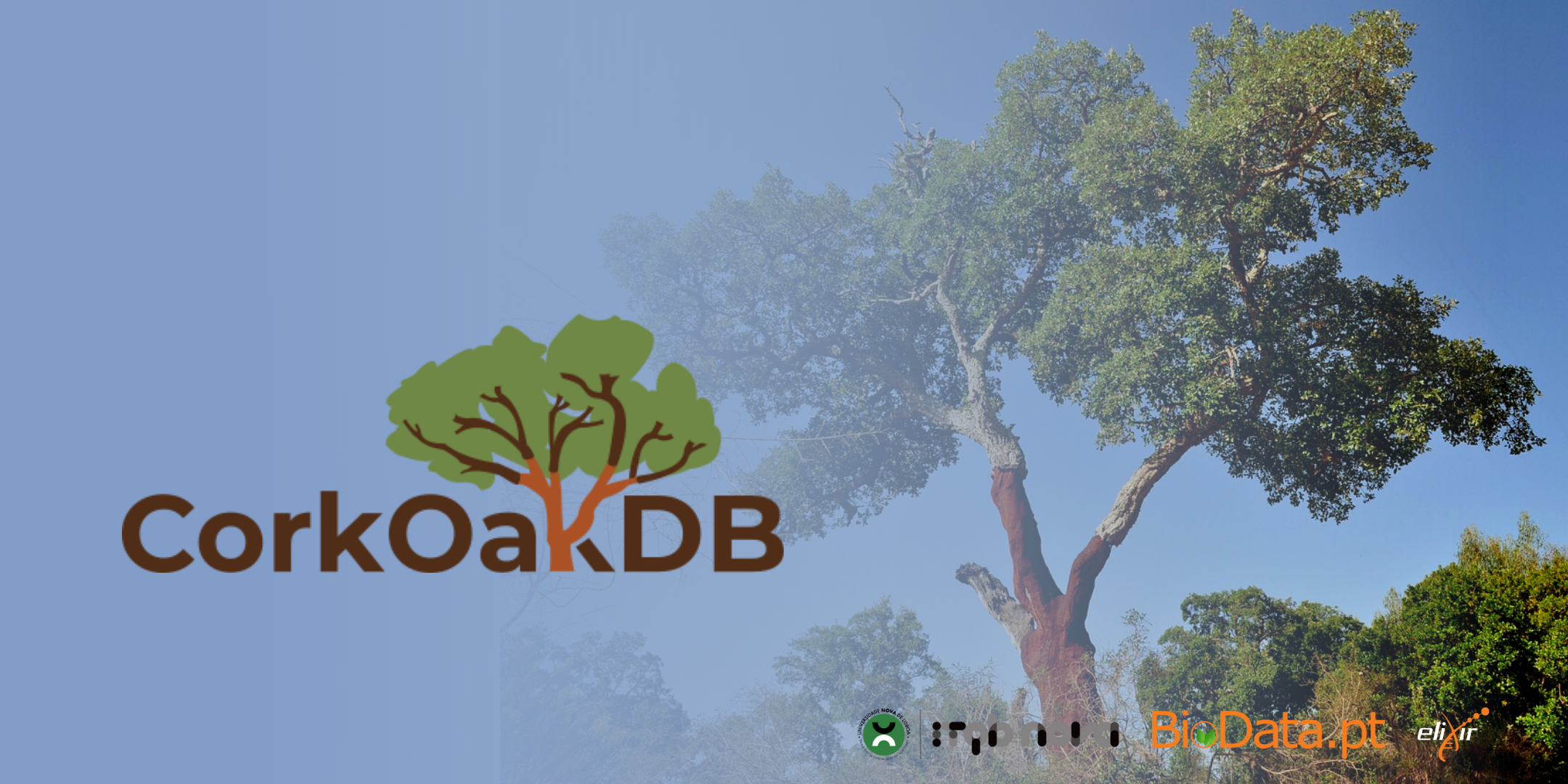Cork Oak has significant relevance in the Mediterranean at both economic and ecological levels due to the sustainable production of cork. The Cork Oak Genome Database Portal (CorkOakDB) emerged, in January 2018, as a joint effort to create a global repository of genomic data for Quercus suber and to serve as a founding platform to boost further research into this species.
In 2018, Ramos et al. published the first reference genome for this species, while a set of 15 publicly available gene expression datasets were already available on NCBI. All this data from NCBI BioProjects, gathering different cork oak tissues and experimental assays, was curated and constitutes the foundation of this portal. In addition to the data, the portal was also enriched with several search and analysis tools useful for researchers and the lay community. It includes a search engine, a BLAST search, a Genome Browser (JBrowse), tools for visualization of gene expression, and a few direct downloads allowing users to search features, conduct gene/protein homology searches, visualize annotations and gene expression, download relevant files and create heatmaps. CorkOakDB guarantees the update, curation and data collection, aiming to collect data besides the genetic/genomic information, to become the main repository in cork oak research.
CorkOakDB is making an incredible effort to become a reference hub for research on Quercus suber with almost 4 years of existence and more than 7400 users. We hope that the portal will continue to grow as more data is made available!
If you want to know more information about the CorkOak DB Portal check the “CorkOakDB” playlist on our YouTube page where we made available a series of tutorials to help our users easily navigate the CorkOakDB portal and interviews with some of the key players of this project.
The Cork Oak Genome Database Portal was supported by BioData.pt, ref 22231/01/SAICT/2016, funded by Portugal 2020, by the EC H2020 grant 676559 ELIXIR-EXCELERATE, by the ELIXIR Commissioned Services Contract PT2020-BIOS CHEMAS, and by the Portuguese Fundação para a Ciência e a Tecnologia (FCT) through fellowships SFRH/BPD/86742/2012 (PMB) and the R&D Units UIDB/04551/2020 (GREEN-IT - Bioresources for Sustainability) and UIDB/50021/2020.

- Log in to post comments





